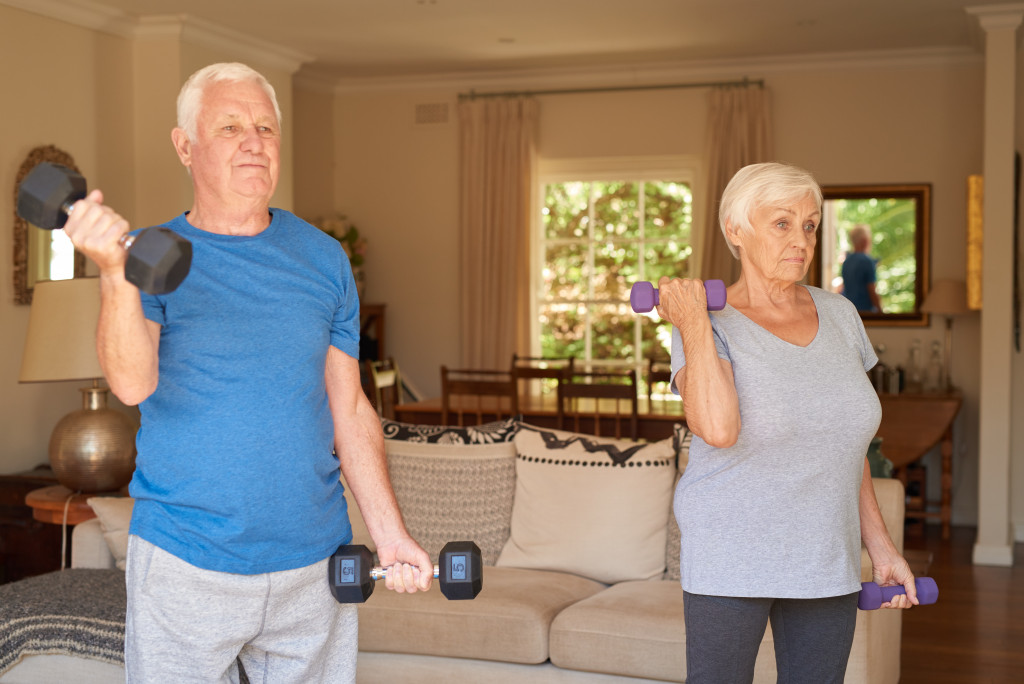- The number of seniors eligible for Social Security and Medicare will nearly double.
- Physical activity, including strength training and stretching, is crucial for seniors.
- Eating a balanced diet rich in nutrients while limiting processed foods is essential.
- Preventative care, including regular check-ups and screenings, is crucial to maintain good health.
- Staying social, connecting with loved ones, and getting enough sleep is vital in aging gracefully.
According to the Congressional Budget Office (CBO), the number of people aged 65 or older, who are eligible for Social Security and Medicare and are less likely to work, will increase from an average of 36.5 million people between 1983 and 2022 to an average of 73 million people between 2023 and 2053.
Aging is a natural process everyone goes through, and while it has its positive aspects, it can also bring challenges. As people age, their bodies change, becoming more susceptible to certain health conditions. Senior adults need to stay proactive about their health and take steps to maintain their well-being. This blog will discuss tips for senior adults to help them stay healthy and age gracefully.

Stay Active
Physical activity is crucial for maintaining good health, especially as you age. Regular exercise can help prevent chronic diseases such as heart disease, diabetes, and arthritis. It also helps improve balance, flexibility, and strength.
Moderate Physical Exercise
Seniors should aim for at least 150 minutes of moderate physical activity weekly. This can include walking, swimming, and resistance training. Seniors should consult with their doctor before beginning any exercise program.
Strength Training
Strength training is using resistance to help build muscle and bone strength. Examples include lifting weights or performing bodyweight exercises such as push-ups, sit-ups, and squats. Strength training can help improve posture, balance, and coordination. It also helps increase strength, flexibility, and mobility.
Stretching Exercises
Stretching exercises improve flexibility, range of motion, and joint mobility. Examples include yoga, Tai Chi, and Pilates. Stretching can also help reduce pain and improve circulation. Seniors should consult with their doctor before beginning a stretching routine.
Eat a Healthy Diet
Diet plays a critical role in your health, and eating a balanced diet is especially important for seniors. People’s bodies require more nutrients to function correctly as they age. Seniors should aim for a diet rich in vegetables, fruits, lean proteins, healthy fats, and whole grains.
Limit Processed Food
They should also limit their intake of processed foods and sugar. It’s also important to watch portion sizes, as overeating can lead to weight gain. Drinking fluids is also essential, especially in the hot summer months when dehydration is a significant risk factor for seniors. If you or an older loved one are struggling with a healthy diet, talking with a nutritionist or dietitian may be helpful.
Practice Preventative Care
Preventative care is crucial for maintaining good health, especially as people age. Seniors should schedule regular check-ups with their doctor, get recommended vaccinations, and undergo cancer screenings. They should also monitor their blood pressure and cholesterol levels and take medication as prescribed.
Care Management Center
If their blood sugar level is high, enroll them in a reputable diabetes care management center. The center can also offer other medical services that a senior adult may need. The specialists at the center can provide recommendations on diet and exercise, monitor blood work, and even offer advice on managing stress.
Stay Social
Socialization is critical for mental health, and seniors need to stay social. Socialization can help prevent depression and loneliness, and it can also help improve cognitive function. Seniors can participate in community events, join a club or organization, or volunteer. They can also stay connected with friends and family through social media, phone calls, or video chats.
Overall Well-Being
Connecting with friends and family is essential for a senior’s overall well-being. It can provide social support and help reduce feelings of isolation. Seniors should try to stay in touch with people they care about regularly, even if it is just to ensure that things are alright.

Get Enough Sleep
Sleep is essential for overall health, and seniors must get enough sleep. Lack of sleep can lead to various health problems, including depression, anxiety, and hypertension. Seniors should try to sleep at least seven hours each night.
Sleep Routine
They should have a regular sleep routine and avoid caffeine or alcohol before bedtime. Doing this can create a comfortable sleep environment. Getting a good night’s sleep can help promote better overall health. It also reduces issues of irritability and memory problems.
Aging does not mean you have to sacrifice your health and well-being. By following these tips, senior adults can stay healthy and age gracefully. Remember, it’s never too late to change your lifestyle positively. You can enjoy a healthy and fulfilling life by staying active, eating a healthy diet, staying social, getting enough sleep, and practicing preventative care.



